Rishi Sunak’s first cabinet
What we know about the members of Rishi Sunak's first cabinet and some of the challenges they may have to deal with.
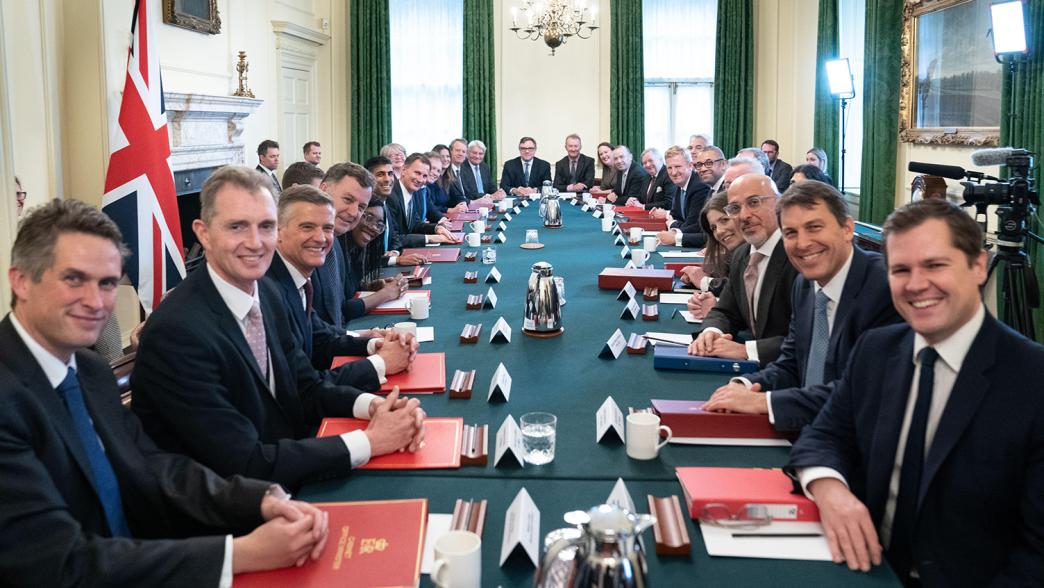
After becoming prime minister on 25 October, Rishi Sunak appointed his first full cabinet. Here we set out what we know about the members of the cabinet and some of the challenges they may have to deal with.
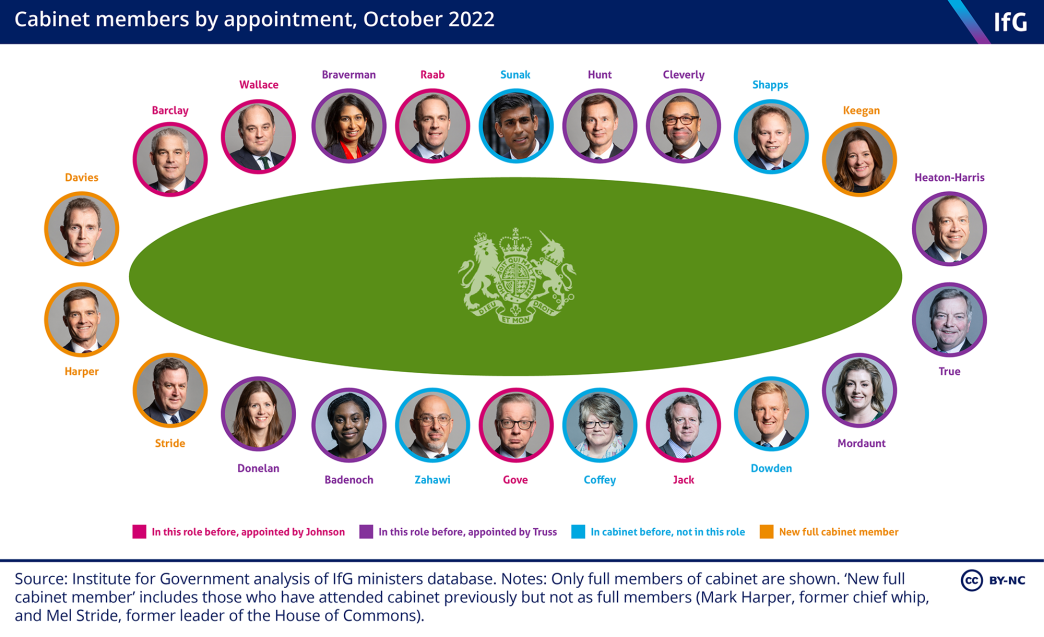
There are many familiar faces
Many of Sunak’s cabinet members have been at the top table before, with several having done their current role under Johnson and/or Truss. Sunak has also brought back people who served under David Cameron and Theresa May, presumably to help with party unity and stability.
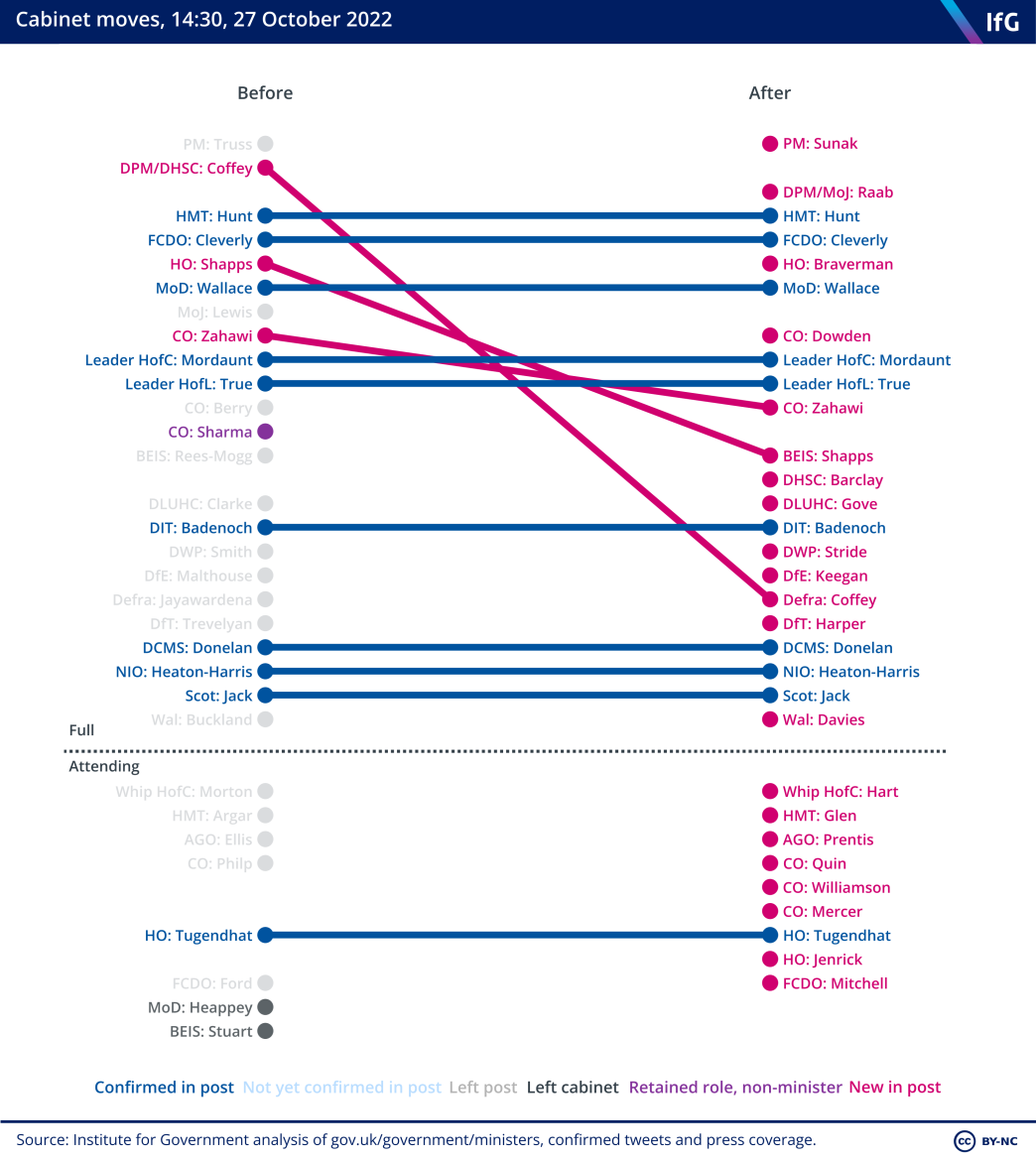
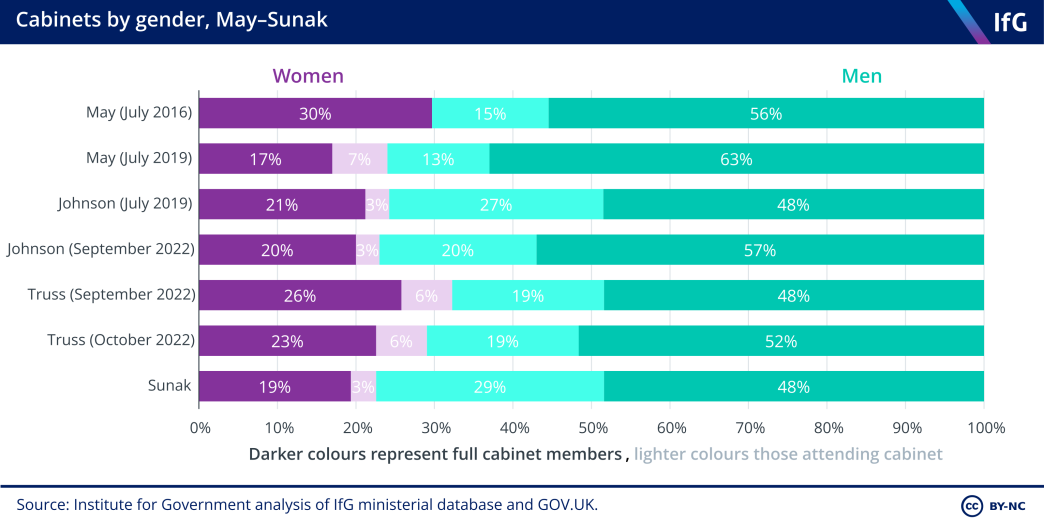
Sunak’s cabinet has fewer women than Truss’s, and more MPs elected earlier
Less than a quarter of the people attending cabinet are women, a smaller proportion than Truss’s cabinet both at the beginning and end of her government.
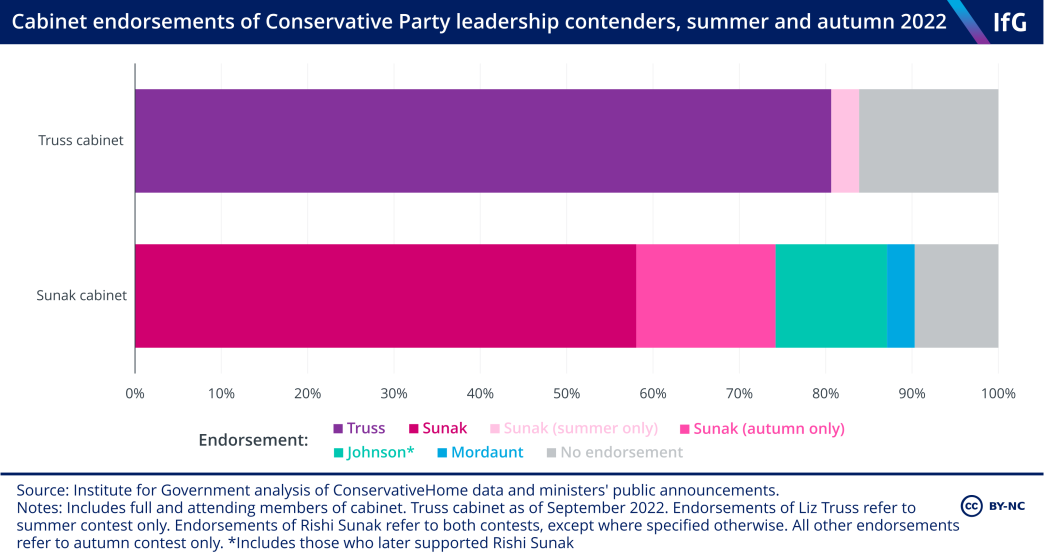
The new cabinet also has a higher proportion of MPs first elected in 2010 and earlier, though there are still several elected in 2017. There are no cabinet members who were first elected in 2019.
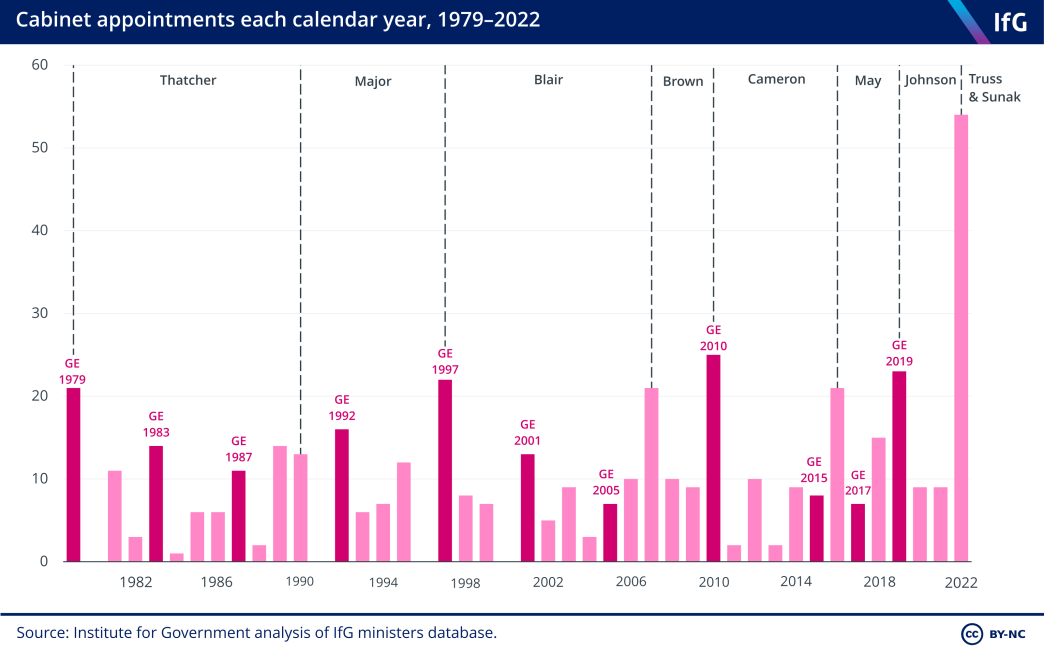
Most of Sunak’s cabinet endorsed him for leader
Like Truss, Sunak has a majority of supporters in his cabinet – though he did also include rival Penny Mordaunt and several supporters of Boris Johnson (most of whom then swung in to support Sunak once Johnson dropped out).
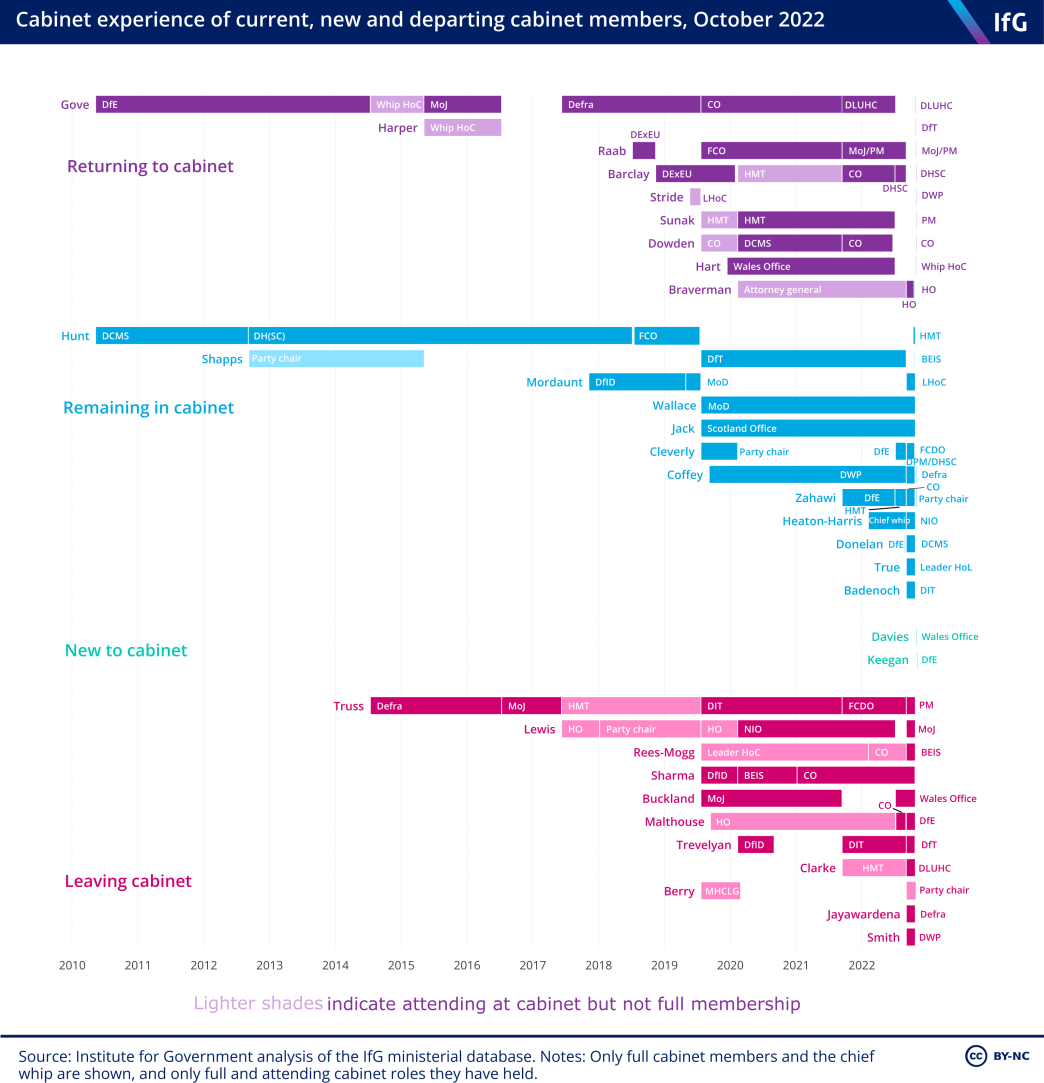
What will the new cabinet be dealing with?
Earlier this week we set out five of the key steps Sunak should take on entering No.10. There are also some specific pointers from IfG colleagues:
Sunak has appointed two reliable foot-soldiers to the Cabinet Office
The new prime minister has made his two main Cabinet Office appointments: Oliver Dowden as chancellor of the duchy of Lancaster and Jeremy Quin as paymaster general and minister for the Cabinet Office. Also in the department are Nadhim Zahawi as Conservative Party chair, Johnny Mercer as veterans minister and Gavin Williamson in a perplexingly yet-to-be-determined job – but it is Dowden and Quin who will have most influence over how the government runs.
Dowden is likely to spend most of his time brokering between departments and resolving internal arguments on behalf of the prime minister. Quin is in charge of civil service reform, government efficiency and oversight of government ‘functions’ like HR, digital, property and communications.
The duo should learn from the mistakes of their predecessor-but-one Jacob Rees-Mogg. He briefed out eye-catching but superficial civil service cuts, throwing out numbers with no plans attached, antagonising officials and many of his ministerial colleagues too. So Dowden would be well advised to drop the culture wars he has previously seemed tempted to start and to co-opt the civil service into his priorities for government. If he does that, he and Quin have the chance to reset relationships and to build on Michael Gove’s more effective 2021 work to implement sustained efficiencies and government reform.
Alex Thomas
Shapps will have his hands full at BEIS
The appointment of Grant Shapps as business, energy and industrial strategy secretary, responsible for net zero, will be welcomed by many in the climate world. Shapps is known for his enthusiasm for electric vehicles – and he pushed the transport department to be at the front of the pack on net zero. But his new role won’t be easy. Much of his time will be taken up responding to the immediate energy crisis – most pressingly the question of what will replace the Energy Price Guarantee in April, as well as how to support businesses.
But an updated net zero strategy is due in March, and the latest projections show the UK is still a long way off track for meeting its carbon budgets in the 2030s. Shapps will need to corral more action from laggard departments like the Department for Levelling Up, Housing and Communities (DLUHC) and the Department for Environment, Food and Rural Affairs (Defra), against headwinds such as a chancellor and PM who appear unlikely to see net zero as a priority and the prospect of spending cuts hitting critical capital spending. A bright spot could be home energy efficiency, which sits between BEIS and DLUHC. With both now led by net zero backers, could the UK turn around its woeful record?
Tom Sasse
2022 has been the year for reshuffles
After a manic few weeks in British politics, the prime minister and his team are presumably hoping to be able to get on with the job. 2022 has seen the most appointments to the cabinet by far, at 54, which is twice the previous high in 2010.
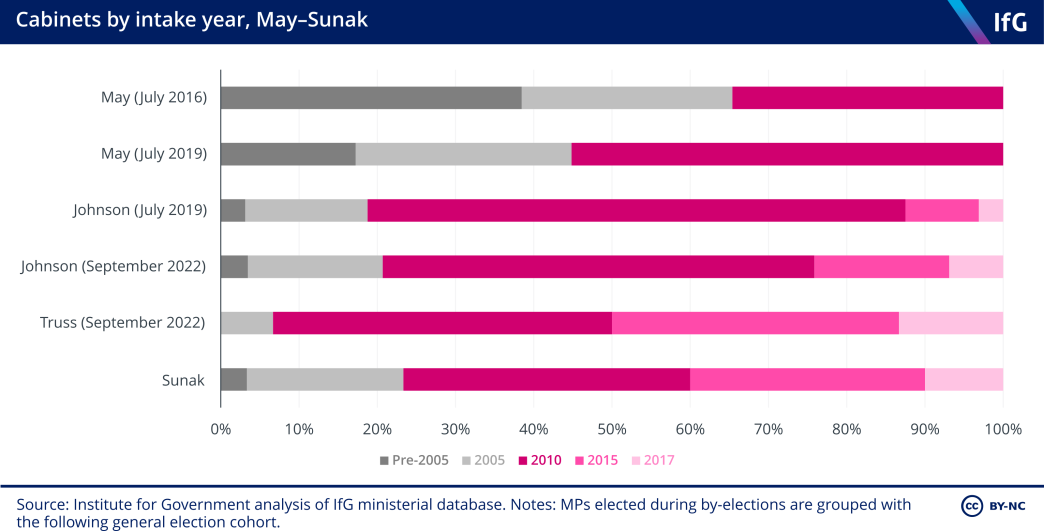
- Topic
- Ministers
- Political party
- Conservative
- Position
- Prime minister
- Administration
- Sunak government
- Department
- Number 10
- Public figures
- Rishi Sunak
- Publisher
- Institute for Government